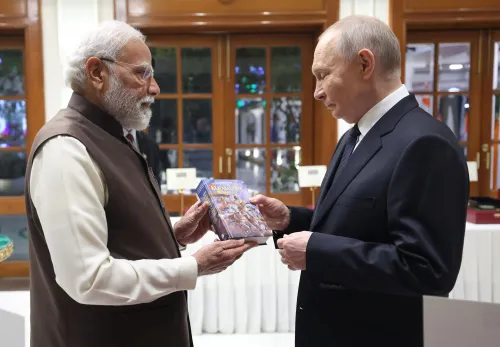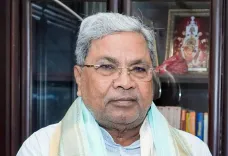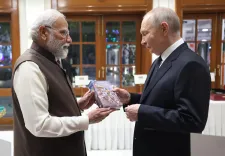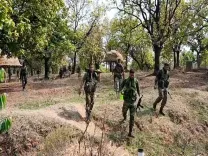What Does the Meeting Between PM Modi and President Xi Indicate About India-China Relations?
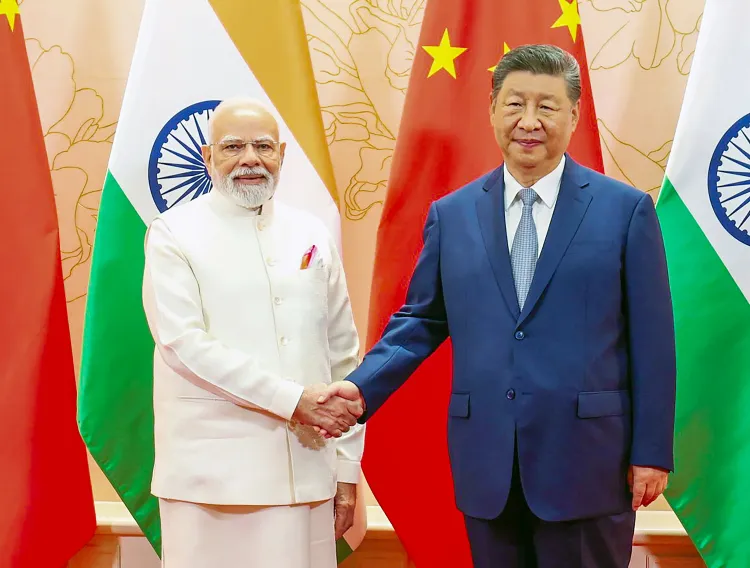
Synopsis
Key Takeaways
- Importance of dialogue and mutual trust in India-China relations.
- Resumption of direct flights signifies improving bilateral ties.
- Focus on peace and stability along border areas.
- Commitment to resolving boundary disputes through cooperation.
- Potential for enhanced people-to-people connections.
Tianjin, September 1 (NationPress) Prime Minister Narendra Modi and Chinese President Xi Jinping convened on the sidelines of the Shanghai Cooperation Organisation (SCO) Summit in Tianjin, China, demonstrating a pragmatic approach from both nations that emphasizes the importance of dialogue, confidence-building initiatives, and regional cooperation.
The leaders concurred that the foundation of their future relations must be built on “mutual trust, respect, and sensitivity”, as highlighted in a report by India Narrative. They addressed strategies for maintaining stability along the contentious borders and announced the forthcoming resumption of direct flights between India and China.
During their discussions, PM Modi stressed the necessity for collaboration between the two countries to stabilize the global economic landscape. He also invited President Xi to participate in the BRICS Summit that India will host in 2026. The two leaders reviewed the advancements in India-China relations since their previous encounter in Kazan, Russia, in 2024.
According to a press release from the Ministry of External Affairs (MEA), PM Modi underscored the significance of peace and tranquility in border regions for the ongoing development of bilateral ties. They acknowledged the need to enhance people-to-people connections through direct flights and visa facilitation, building upon the resumption of the Kailash Manasarovar Yatra and tourist visas.
The MEA statement noted, “The two leaders expressed satisfaction regarding the successful disengagement last year and the maintenance of peace and tranquility along the border areas since then.” They committed to a fair and mutually acceptable resolution of the boundary dispute, considering the broader context of their bilateral relations and the long-term interests of both peoples.
Following their meeting, PM Modi shared on X, “Had a fruitful meeting with President Xi Jinping in Tianjin on the sidelines of the SCO Summit. We reviewed the positive momentum in India-China relations since our last meeting in Kazan.” He emphasized the necessity of maintaining peace in border areas and reaffirmed their commitment to cooperation based on mutual respect and interests.
This marked PM Modi's initial visit to China since 2018 and his first since the Galwan Valley clash in June 2020. The significant diplomatic progress was facilitated by an agreement between India and China on patrolling along the approximately 3500-km LAC to conclude a four-year-long border standoff.
According to the India Narrative, “Recent developments highlight a pragmatic approach from both New Delhi and Beijing, prioritizing dialogue, confidence-building measures, and regional engagement.” While deep-seated differences persist, the reopening of direct flights, commitment to border stability, and collaboration within the SCO framework indicate a gradual thaw in relations.


